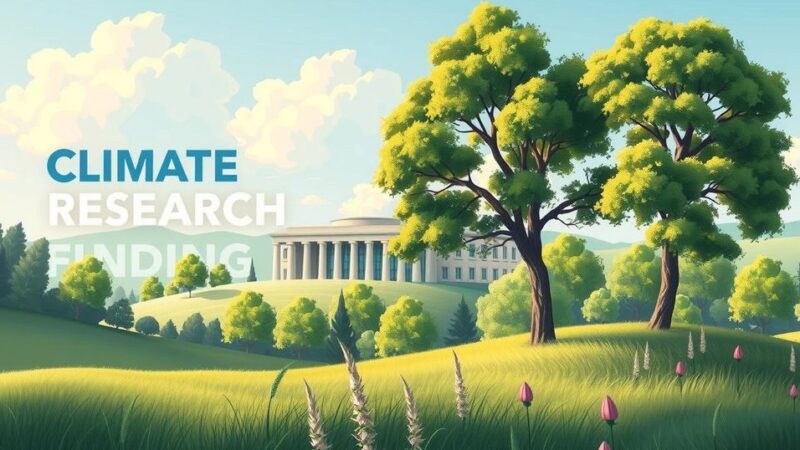A recent report reveals that climate change significantly hinders education in Brazil through canceled classes, extreme weather, and health crises. It emphasizes the need for curricular reforms focused on environmental literacy and climate resilience. Additionally, it advocates for comprehensive community involvement and highlights the responsibility of public authorities in addressing these urgent challenges.
Recent findings illuminate how climate change is affecting education in Brazil, with classes canceled due to floods, severe heat disrupting studies, and school absenteeism arising from respiratory issues linked to wildfires. These challenges impact access, retention, and learning among students. A technical note by Sofia Lerche, an esteemed Professor at the State University of Ceará, titled “The Impact of Climate Change on Education: Initiating a Debate,” addresses these issues and proposes solutions for schools to mitigate these adverse effects.
Ms. Lerche articulates that the climate crisis is an external variable influencing educational institutions. She asserts that, while schools play a limited role in combating climate change, they can be pivotal in raising awareness about environmental issues and providing support during extreme weather events. She emphasizes that educational practices must factor in such challenges to foster resilience among students.
To adapt to this crisis, Lerche highlights a pressing need for curricular reforms that foster climate and environmental literacy. This encompasses enhancing teacher training and promoting research on climate policies and education. The integration of environmental themes across various subjects, rather than isolating them within one discipline, is viewed as essential for comprehensive understanding and addressing the complexity of the climate crisis.
The professor advocates for a project-based pedagogical approach, wherein teachers collaborate across subjects to engage students with relevant themes throughout the academic year. Incorporating emotional support practices to help children manage “climate anxiety” is also crucial, ensuring they develop the skills necessary for “climate resilience.”
Amid climate emergencies, when traditional classroom settings are disrupted, Professor Lerche underscores the importance of revisiting remote learning strategies developed during the Covid-19 pandemic. She urges for a planned reimplementation of these innovative approaches, which can provide continuity in education despite external challenges.
Moreover, the report stresses the significance of active community engagement in environmental initiatives both within schools and in broader contexts. Schools can serve as models for their communities, particularly in extreme circumstances, given that they may provide safe spaces for displaced populations.
Lerche also emphasizes that public authorities have a fundamental role in facilitating this transformation, ensuring coordination across various regions to address specific local challenges, such as drought and flooding incidents. The note draws upon recent studies and publications from esteemed organizations like UNESCO, the World Bank, and the OECD to underscore its findings.
Despite the recent emergence of awareness regarding the impact of climate issues on school attendance, Ms. Lerche contends that there is undeniably a significant effect on teaching and learning processes in diverse contexts. The implications of these findings necessitate concerted efforts to address the educational disruptions caused by the climate crisis effectively.
In summary, the technical note by Sofia Lerche highlights the profound impact of the climate crisis on education in Brazil, emphasizing urgent curricular reforms, community engagement, and adaptive teaching strategies. The document serves as a call to action for schools to foster climate resilience and awareness among students, while also directing attention to the vital role of public authorities in coordinating effective responses.
Original Source: valorinternational.globo.com






